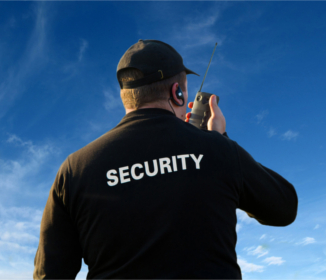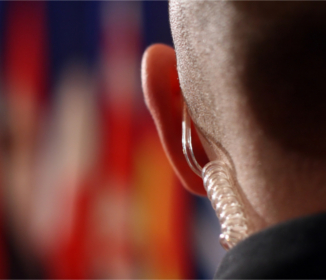It is technically possible to get a job as a security guard without any formal training or licence. However, doing so requires at least some experience in a similar career – such as police work or military training – and an employer hiring their security guards directly rather than working through an agency. Because most companies outsource their security, most security guards must possess a valid Security Industry Authority (SIA) licence.
The law requires any company or agency providing front line security services to use only licenced security guards. A licenced security guard is one who is at least 18 years of age, passes a criminal background check, and completes training approved by the SIA.
New guards can receive SIA training through a local college or dedicated training centre. Thankfully, the training is not terribly time-consuming. If there are no training opportunities available near where you live, you might be able to take advantage of an apprenticeship programme that still enables you to be licenced.
Getting Started
The SIA explicitly states on their website that training candidates must pass criminality checks in order to be licenced. They say they may also check the mental health and right to work status of any candidate prior to licencing. All three are necessary to ensure only qualified individuals who can perform safely and competently receive licences.
The first step in obtaining a licence is to determine the level of training you want to undergo. The SIA recognises two different levels: the Level 2 Award for working as a front line security guard within the private security, and the Level 6 Award to work as an SCQF officer in Scotland. There are a number of awarding organisations that provide certificates upon completion of training:
• BIIAB
• City & Guilds
• Pearson BTEC
• Highfield (HABC)
• Industry Qualifications (IQ)
• Trident and Awards
Please note two important things here. First, this is just a short list of awarding organisations; there are others we have not listed here. Second, these awarding organisations do not necessarily provide training themselves. They work with training companies and colleges to put together training programmes for which they offer awards.
Upon completion of a training programme, the candidate moves on to the application stage. Application for a licence is made directly to the SIA, although some colleges and training centres include application submission as part of their programmes for all successful graduates.
Application Process
Licence applicants can obtain the necessary paperwork directly from the SIA. The application fee for a standard three-year licence is £220. The application fee for the front line immobiliser licence is also £220, but that licence is only good for one year. Application fees are non-refundable and must accompany the application. The SIA will not process an application without the fee being paid in full.
Application approval typically takes 25-30 working days. The SIA claims that upwards of 80% of their applications are approved within this period. However, there are no guarantees. Your application may be delayed at any point if it fails validation and must be returned to you for further information or clarification. In such a case, approval of your application could take an additional 25-30 days from the day you return it.
The SIA offers a free, downloadable publication with detailed information about SIA licencing, the application process, and what it takes to be approved. The document can be found on the SIA website.
Post Approval
Once a security guard is licenced, he or she can begin working on any front line assignment covered by the licence held. There are no requirements for additional training in order to renew one’s licence, but such training is recommended by the SIA whenever possible. They also suggest local training for any assignment that may involve elements not covered by initial training.
Plan to apply for an SIA licence if you want to be a security guard. The number of positions not requiring licences is relatively low in terms of the total number of jobs out there. As an added bonus, having a licence makes it easier for you to get the kinds of assignments you want and, over time, move up the ranks within the industry.

